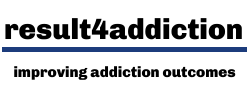Motivational interventions research
selected articles
Motivational dialogue is a style of practice
It is self-evident that motivation is a prerequisite of voluntarily making change. If I am enjoying my drinking or party drugs or smoking and I don’t seem to have any adverse consequences, then why am I going to change? Skilled use of motivational techniques can help people to change.
What service users say can be categorised into 1. ‘resistance talk’ also called ‘sustain talk’ where the service user expresses acceptance of the status quo and/or active resistance to change 2. ‘change talk’ denotes thinking about reasons for change 3. ‘commitment talk’ denotes determination to change and action planning 4. ‘chat’ which is talk about anything irrelevant to the task in hand.
Meta-analysis :: 25 years of motivational interviewing
This meta-analysis included 119 studies covering a broad spectrum of addictive behaviours. MI was compared to weak interventions, such as being on a waiting list or treatment as usual, and strong interventions, such as a 12-step programme or CBT.
MI did not show significant benefits over strong interventions, which all have structure defined in some form of guidance, and so we consider only comparisons against weak interventions here. Motivational Enhancement Therapy was seen as a structured treatment defined as MI + feedback.
There were significant, small to moderate effects from MI for substance use problems (1st chart). There is evidence to support MI as an ‘additive’ or style of working with other interventions and also as a stand alone approach in preparation, a ‘prelude’ to other treatment or as MET (2nd chart). There is some evidence that more experienced and higher qualified staff get better results with MI.
Lundahl BW, Kunz C, Brownell C, Tollefson D and Burke BL (2010) A Meta-Analysis of Motivational Interviewing: Twenty-Five Years of Empirical Studies Research on Social Work Practice 20: 137-160
A strength of MI is its portability into different treatment formats and practitioner roles
It is clear that motivational interviewing is a style of working that can be applied to alcohol and drug addiction, behavioural addictions such as gambling, and pretty much any other kind of problem. Using MI as a stand alone typically produces modest outcomes and we suggest that all practitioners simply adopt a motivational style of working embedded in specific interventions.
Meta-analysis :: Testing the causal model of motivational interviewing
This meta-analysis included 16 studies where MI was the treatment for alcohol or drug misuse, smoking and gambling problems. The aim was to test the theoretical mode of action of motivational interviewing. MI consistent behaviour (eg open questions, reflections and affirmation) were compared to MI inconsistent behaviours (eg confrontations, warnings, unsolicited advice).
As predicted, MI consistent behaviour increased change talk but had uncertain effects on reducing resistance related talk and the outcome of treatment. MI inconsistent behaviour was clearly associated with less change talk, more resistance to change and poorer treatment outcome.
Magill, M., Gaume, J., Apodaca, T. R., Walthers, J., Mastroleo, N. R., Borsari, B., & Longabaugh, R. (2014) The Technical Hypothesis of Motivational Interviewing: A Meta-Analysis of MI’s Key Causal Model. Journal of Consulting and Clinical Psychology 82: 973–983
Important study :: Client resistance talk
This study analysed video recordings of actual treatment sessions. Therapist practice made a significant difference: where MI consistent behaviour was adopted in response to client resistance talk, it was three times more likely than chance to be followed by change talk, and twice as likely to be followed by ambivalence, a step in between resistance talk and change talk; MI inconsistent behaviour resulted in more resistance talk, whereas change talk and ambivalence were 50-60% less likely. The findings add support to the causal model.
Drage L, Masterson C, Tober G, Farragher T, and Bewick BM (2019) The Impact of Therapists’ Responses to Resistance to Change: A Sequential Analysis of Therapist Client Interactions in Motivational Interviewing. Alcohol and Alcoholism 54: 173-176
It is clear what NOT to do. Dealing with sustain talk requires some particular MI skills.
The theory behind motivational interviewing is well supported by the evidence. It makes sense that all staff in treatment agencies should understand MI principles and be skilled in using MI. The next study looks at the most effective of MI skills.
Important study :: What particular kinds of talk predict better outcomes?
This study looked at the motivational interviewing skills of therapists delivering Social Behaviour and Network Therapy (SBNT) or Motivational Enhancement Therapy (MET) in the UK Alcohol Treatment Trial to see what made a difference to drinking outcomes.
Some MET therapists used MET specific behaviours (motivational interviewing skills) to a high standard, but so did some SBNT therapists. Quality (not frequency) of MET predicted 12-month alcohol outcomes, irrespective of treatment condition. Since both MET and SBNT therapists scored high on MET quality items, this may have contributed to the finding that both interventions have similar outcomes. The table shows the five therapist behaviours that predicted drinking outcomes...
Gaume J, Heather N, Tober G, McCambridge J (2018) A Mediation Analysis of Treatment Processes in the UK Alcohol Treatment Trial. Journal of Consulting and Clinical Psychology 86: 321–329
Important study :: Complex reflections
This study analysed video recordings of actual treatment sessions. Open questions and complex reflections were associated with ‘preparatory’ talk, that is talk that comes before making a commitment to change. Therapists’ complex reflections were predictive of strong client commitment talk, which typically was expressed after a brief delay - perhaps to digest and think over the reflection. Other motivational techniques did not have effects on commitment to change.
Brown M, Masterson C, Latchford G, and Tober G (2018) Therapist–Client Interactions in Motivational Interviewing: The Effect of Therapists’ Utterances on Client Change Talk. Alcohol and Alcoholism 53: 408-411


